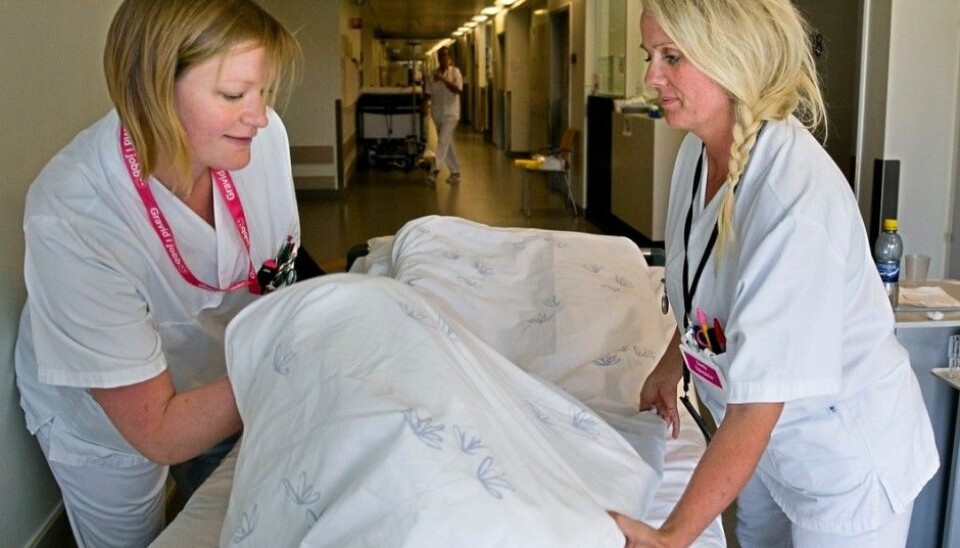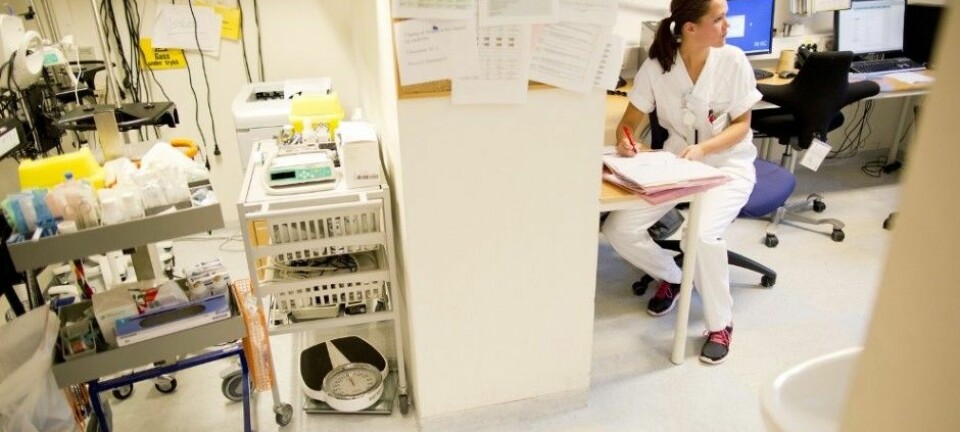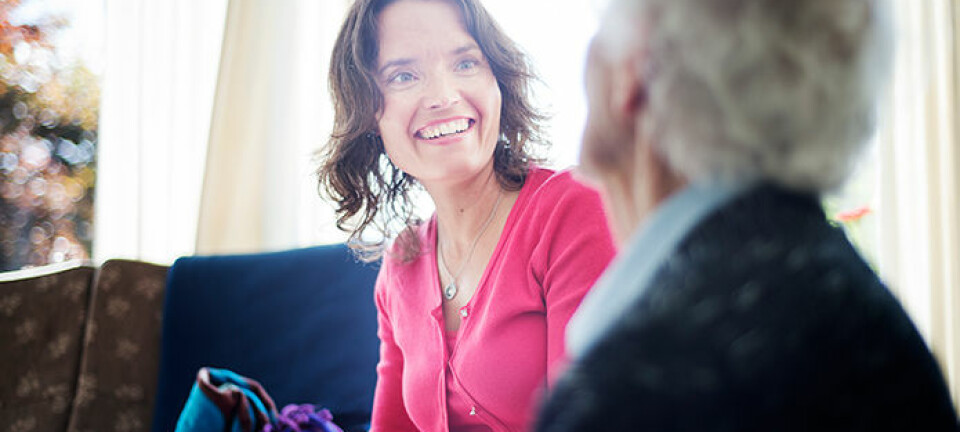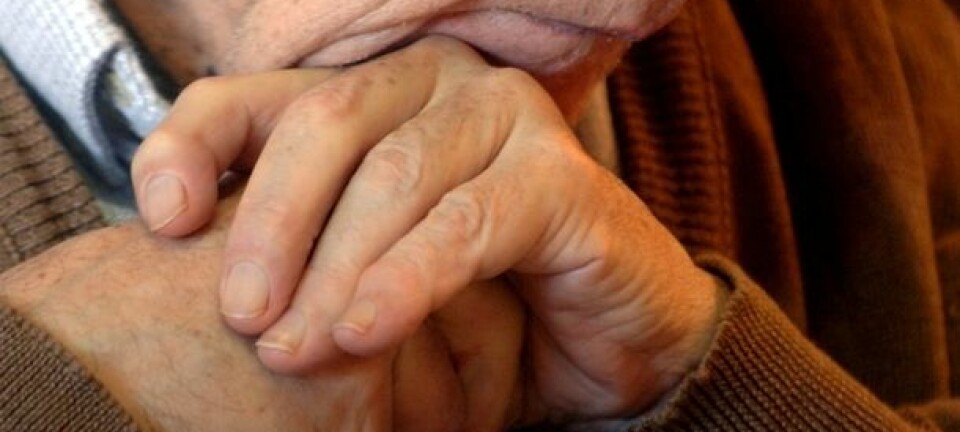
Student nurses get a grip on research
Student nurses comprehend and appreciate more research than students on the paths to becoming teachers or engineers.
Denne artikkelen er over ti år gammel og kan inneholde utdatert informasjon.
When former university students were asked three years after graduation, 61 percent of nurses confirmed that their education gave them insight into how research is carried out. Only 27 percent of engineers and those who had received a general teaching degree answered the same way.
“It would seem that the elements of research are more strongly incorporated into the education of nurses than in the curricula of other professions. The student nurses have a more conscious relationship to research literature and to evaluating this literature critically,” says André Vågan.
Vågan is one of the authors of the book "Forskningsbasert utdanning?" [Research-based education?], which was released this week. Researchers from the Nordic Institute for Studies in Innovation, Research and Education (NIFU) and the Oslo and Akershus University College’s Centre for the Study of Professions cooperated in publishing the book.
First-hand research experience
There is a growing demand for faculty training teachers, nurses and engineers to participate in research projects. The same applies to college instructors who educate students for other professions.
Moreover, students should preferably participate in the educators’ research projects in the course of their years of studies.
This is commonly thought to enhance the education process.
The authors of the new book disagree, in part on the basis of their findings from international studies.
They found that the quantity of researchers or publishing points chalked up at a college is not what determines whether the quality of its education is good or poor.
“Research activity can have a positive impact. But there is little or no correlation between how much research you do and how well you teach,” explains Vågan.
Gone too far
The researchers behind the book have conducted surveys and interviews among students and teachers involved in general teaching studies, pre-school teaching, nursing, social work and engineering.
Many of the educators interviewed mentioned escalating expectations that their teaching be based on their research.
“Many repond positively to this in principle. But lots of people we talked to think this has gone too far,” Vågan said.
It’s a challenge trying to involve undergraduate students who are in a three- or four-year educational programme in meaningful research work. Vågan says the reasons for this are both practical as well as linked to issues of research ethics.
Less than half teach what they research
The study showed that less than half of the faculty taught topics that were directly based on their research. In other words, they were not actively passing on knowledge from their own research, in contrast to what national ideals and political goals would have them do.
The share that do teach based on what they study varied from 70 percent of those educating pre-school teachers and 60 percent for general teachers, to 40 percent for those training social workers and about 33 percent for those teaching engineering.
A little over 50 percent of those educating nurses used their research in their curriculum.
Nurses on top
Even though more research is conducted among faculty involved in educating teachers than those who are educating nurses, far more student nurses than student teachers have a tangible relationship to research.
“When student nurses are asked what they associate with the concept of ‘research-based education’, more of them immediately respond ‘Education that makes use of the newest and best research and which teaches us to evaluate research’,” said Vågan.
When students who were learning to become teachers were asked the same, their answers were more likely to be vague.
Two-thirds of the student nurses agreed that it is important to keep updated on research. Vågan says this is a much higher share than amongst the students pursuing other professions.
“Evidence-based practice, in other words knowledge about what works and what does not in medicine, has been more strongly incorporated into the education of nurses in the last few years. The education of teachers, by comparison, can include ideological and professional disagreement about the expediency of teaching and working on an evidence basis with the students,” he says.
What do we really know?
Gro Jamtvedt heads up the Department of Evidence Summaries at the Norwegian Knowledge Centre for the Health Services. She has been evaluating research professionally for years.
She questions whether experience conducting one’s own research is necessary for astutely passing on the concepts behind research to students. She isn’t so sure it’s even a good idea.
“How would the development and accruement of knowledge in our society evolve if everyone lectured students primarily about their own research projects?” she said.
“In the education of health personnel, lots of professors and experts have only quoted from their own or certain selected colleagues’ research. The problem with this kind of teaching is that the students are missing out on the total mass of knowledge in a field. The students can get the impression that what the professor is standing there saying is the complete, whole truth.”
Jamtvedt provides an example: Research on the link between alcohol and cardiovascular disease. Or to put it in popular jargon: “Is red wine good for the heart, or not?”
Anyone who reads newspapers and magazines should be able to testify this is a research field where the experts disagree. New, contradicting research results are published some place or another nearly every week. Here one would obviously have to present students to more than one particular study.
“A good educator should disseminate the overall knowledge we have in a field such as this ― not just isolated results from certain research projects.”
------------
Read the Norwegian version of this article at forskning.no
Translated by: Glenn Ostling


































